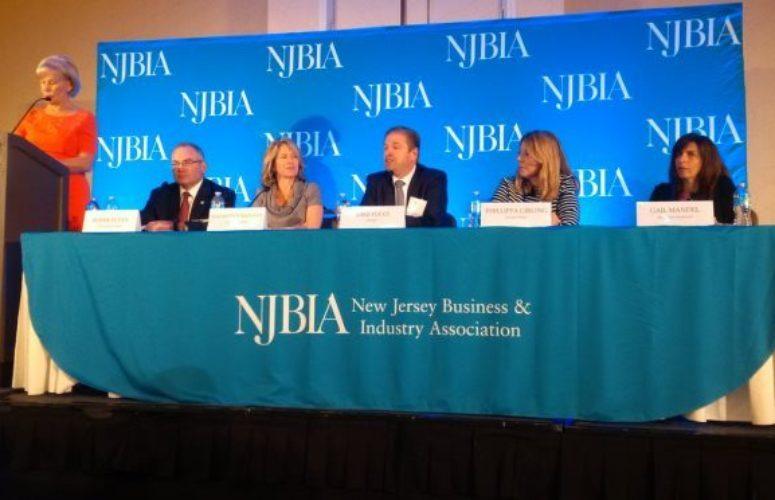
Opening Doors to Lending
EDA and SBA programs make it possible for NJ lenders to support more growing businesses.
By Vince Baglivo, Contributing Writer On Jul 17, 2017It’s tough to own a business in New Jersey. This is a competitive marketplace, with high costs for everything from real estate and taxes, to labor and materials. Small businesses can find it difficult to set aside enough funds to expand to bigger facilities or purchase new equipment, and at the same time maintain liquidity and cash flow to manage their day-to-day operations. Start-ups lack upfront capital and a payment history.
That’s why more and more business owners and entrepreneurs are turning to loan programs offered by the US Small Business Administration (SBA), through its New Jersey district office, and the New Jersey Economic Development Authority (NJEDA). Despite its small size, New Jersey ranks among the most active SBA lending states in the nation along with California and Texas. In 2016, 1,600 SBA loans were approved in New Jersey, totaling $704 million.
Flexibility, tax credits and other incentives to both businesses and participating lenders are creating win-win opportunities for those enrolled in EDA and SBA programs. These collaborative efforts to help grow the state’s economy are attracting new businesses and investment and creating jobs.
Working Together for Business Growth
SBA NJ District Director Al Titone says there are many selling points for financial institutions considering whether to use an SBA lender. “Because there are certain advantages on the terms of an SBA loan, lenders are in an excellent position to develop new accounts. Longer terms on SBA loans translate to lower monthly payments for businesses versus the typical commercial loan that brings a higher monthly payment,” he says.
The SBA-guaranteed portion of a long-term loan is saleable and a source of liquidity for lenders, Titone points out. He further notes they can also increase profits, because an active secondary market often exists for SBA-backed loans; taking part in it can generate noninterest income for the lending institution.
“Participating in SBA’s guaranteed loan program gives lenders the opportunity to help improve the local economy they serve by fostering growth of businesses financed and jobs,” Titone says. “The Community Reinvestment Act is intended to encourage depository institutions to help meet the credit needs of the communities in which they operate, including low- and moderate-income neighborhoods, consistent with safe and sound banking operations. SBA loans can certainly help lenders meet those obligations.”
Melissa Orsen, CEO of the New Jersey Economic Development Authority, says the EDA is unique because of the extensive programs and services offered to spur business growth. “Our ability to remain flexible and react quickly to changing marketplace needs has resulted in a range of programs that leverage strategic partnerships to maximize impact,” Orsen notes. “As a result, we are able to support small businesses and our lending partners by providing low-cost financing opportunities with fast turnaround, fixed rates and attractive terms. The EDA also offers direct loans, which can serve to complement a bank credit facility or assist companies that may not be able to access the bank loan market.”
Small businesses and start-ups are not the only companies that benefit from SBA and EDA programs. The US Small Business Administration reported $51 million in SBA loans approved to New Jersey women-owned businesses during the first five months of fiscal year 2017, the period of October 1, 2016 through February 28, 2017. According to the SBA, of the 138 loans approved to women-owned businesses, 51 loans for $29.7 million (37 percent of the approvals) were for new businesses, while 87 loans for $21.4 million (63 percent of loan approvals) went to existing businesses.
New Jersey’s fast-growing technology sector also factors into programs offered. In April 2017, the NJEDA announced the creation of the NJ CoVest Fund, which provides growth capital to early-stage technology and life sciences companies, driving up to $9 million in investment. According to a press release issued by NJEDA at the time, the NJ CoVest Fund fills a market need in New Jersey, ensuring the availability of capital at a company’s critical stage between product development and commercial operation expansion, where limited funds are currently available and a funding gap exists.
Benefits
Jim Trouwborst, senior vice president, commercial lending for Wayne-based Valley National Bank, says participation in the EDA’s Premier Lender program allows the bank to make loans it couldn’t normally consider based on collateral requirements. “We can be more creative on loan structure, capital and liquidity issues,” Trouwborst adds. “That helps companies that want to expand focus on productivity and growth, not just capital needs.”
The EDA, in partnership with its Premier Lender banks (25 in New Jersey), can provide up to 50 percent of the bank loan amount for fixed asset loans, with maximum EDA participation of $2 million, a maximum EDA guarantee of $1.5 million, and total EDA exposure not to exceed $2.75 million, according to its program description. It further states that the EDA can also provide up to 50 percent of the bank loan amount for working capital loans, with maximum EDA participation of $750,000, a maximum EDA guarantee of $1.5 million, and total EDA exposure not to exceed $2.25 million as well as a guarantee of up to 50 percent of the bank line of credit amount, not to exceed $750,000.
To qualify for a loan from a Premier Lender, business applicants must be in operation for at least two full years, commit to creation or retention of one new, full-time job for every $65,000 of EDA exposure within two years, have a 1.1X Debt Service Coverage Ratio, 100 percent loan-to-value for real estate and 90 percent for equipment.
Thomas E. Lilley, vice president and SBA department manager for Lakeland Bank, says the SBA allows the bank to approve more borrower-friendly terms, such as 25 years on a commercial real estate acquisition versus 10 or 15 without the SBA. Lilley, who points out that Apple Computer was started with an SBA loan, says this lowers the borrowers’ monthly payments significantly, allowing them to reinvest gains back into their business as working capital. SBA loans are also fully amortizing, so this eliminates the need for the borrower to refinance when a balloon payment would come due.
Mark Noto, senior vice president of commercial lending for Short Hills-based Investors Bank, believes a full-service bank that doesn’t offer EDA or SBA loans is short a few arrows in its quiver when it comes to New Jersey’s competitive landscape. “NJEDA and the SBA help make things happen,” Noto says. “There are lots of good businesses that are short on capital. With the help of the EDA, we can bridge the gap so businesses can retain liquidity with lower equity requirements and the opportunity to earn tax exemptions with EDA-backed loans.”
Eleni Monios, group vice president for business banking at M&T Bank, agrees. M&T partners with both the SBA and the NJEDA, Monios adds, because these government-supported loan programs give the bank more tools to help clients finance their small businesses. “Having these additional programs available gives us more options to make sure we get our clients access to the type of financing that best fits their business goals.”
One good example is the SBA’s 504 Program, which provides financing for major fixed assets like real estate or equipment, Monios notes. “Business owners that meet certain eligibility requirements can purchase their buildings for 10 percent down – instead of 20 to 25 percent cash down required with traditional financing.”
Success Stories
Examples of businesses and lenders who have benefited from SBA and EDA loan programs can be found statewide.
Lakeland Bank’s Tom Lilley points to a local business that was leasing space in a strip mall. When the landlord decided to raise its rent significantly, the borrowers could not afford to remain in the space they’d occupied for years. They considered purchasing a commercial property close by, but with a conventional 15-year term, the historical cash flow of the business would not have been able to support the debt and they did not have the 25 percent down payment required for a conventional loan. An SBA loan product enabled Lakeland to offer a 25-year term and save them nearly $2,000 per month on their loan payments.
Monios highlights a $500,000 working capital line of credit to Adagio Teas, Inc. of Garfield, and participation of 50 percent with the NJEDA on a $600,000 term loan to support equipment purchases and permanent working capital needs, reducing the bank’s overall exposure without having to reduce the initial request.
Founded in 1999, Adagio Teas is a wholesale/retail loose tea purveyor that has expanded its retail presence to Chicago, California and London. In 2014, Adagio approached M&T Bank to consider refinancing some of its long-term debt. The business also needed some short-term working capital to purchase inventory from Asia, and equipment financing to help with its growth and expansion. “M&T saw an opportunity to partner with the NJEDA to help minimize some of the risk in financing a rapidly-growing operation so that we could accommodate the request, while also providing Adagio Teas with an attractive interest rate and terms to help improve the company’s cash flow,” Monios notes.
Valley National Bank worked with the NJEDA through its Preferred Lenders program to help Patella Woodworking, a provider of architectural-grade woodwork, relocate from Orangeburg, New York to Passaic. Patella, which brought 70 new jobs to the state, was approved in October 2014 for Grow NJ tax credits of up to $10.3 million over 10 years. In addition, the company closed on three Valley National Bank loans totaling $7.2 million through the Premier Lender program, to acquire and renovate its new facility.
“I’ve seen a number of companies based in New York who say it’s too expensive and have transportation issues that are looking to New Jersey,” concludes Valley National’s Trouwborst. “Businesses want incentives, and NJEDA’s loan programs are helping us leverage those opportunities.”
Related Articles:






